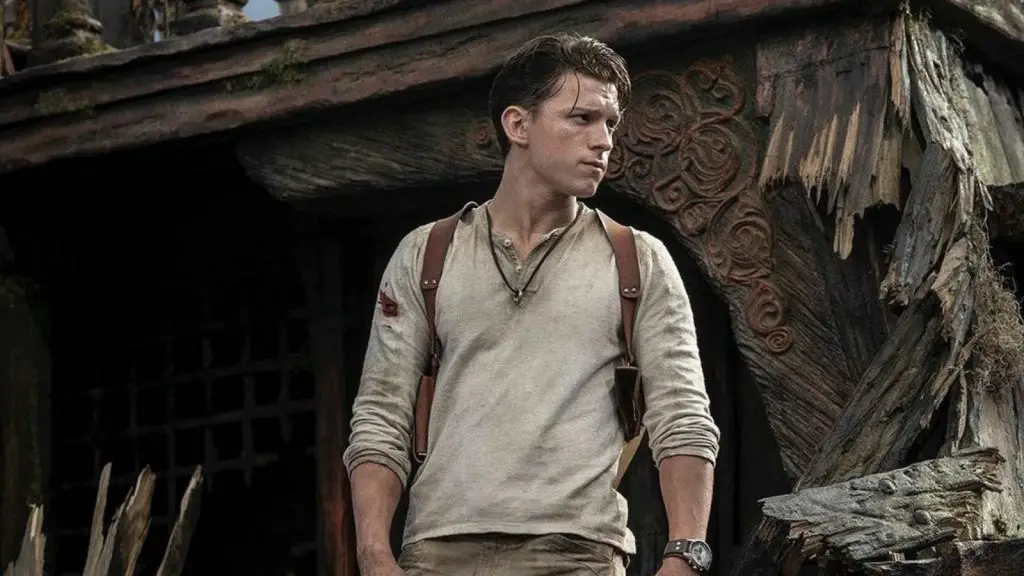
For many, the final popularity poll is measured by bums in seats at the funeral. For Patrick, the number is in single digits. Tellingly, no one signs the book of condolence. For François (Daniel Auteuil, more puzzled than genuinely out of his depth), the service is a chance to finish up a bit of antique business with the dearly departed’s mother.
But before you can say ashes to ashes, François is thrown into a quest to dredge up one “best friend” by his chums or lose a bet with the co-owner (Julie Gayet) of his cash-flow challenged, upscale gallery. The prize? A 5th Century B.C. Greek vase depicting the undying devotion of Achilles to Patroclus—mythically filled with tears—that François has snapped up at auction on a pathetic whim and using company cash.
And so begins the dance for Patrice Leconte’s film that, in the tradition of Norman McLaren (cross-reference below) is more a celebration of movement and music than a parable for our over-communicative, friend-lite, acquaintance-rich society.
François’ passion is old things, not people. He soon discovers that any of his acquaintances bail quick and dirty at his miserable attempts to force them to accept his “meilleur ami” designation. Cue Bruno Boulet (Balanchine in the English translation), the gabby taxi driver (Dany Boon) who collects old facts and pastes them into memory and countless scrapbooks. But wait! Trivia ‘R’ Me is liked yet, in a grand reverberation back to Arthur Miller’s Willy, not well-liked. His former best friend steals has stolen his wife to leave Bruno Boulet (Balanchine in the English subtitles) driving Mr. and Ms. Daisies to appointments with their loved ones.
The choreographic surname is no accident but it’s Boon’s astonishingly expressive visage rather than his feet that is as gifted as Nureyev’s leaps. None of this is lost on composer Xavier Demerliac and his marvellous band, L’Attirail.
Just Boon’s scenes and the music track would make a marvellous film on its own. The sad and poignant accordion, seul, is a tone with the tranquillizer-popping loner. The near-klezmer offerings from the clarinet set the tone and the stage for the evolving relationship between the two disparate men. Wonderful is the bass clarinet introduction as François meets Bruno’s parents—a colour as appropriate as Prokofiev’s Grandfather bassoon. Nervous brushes on the snare reinforce Bruno’s theft-for-love with aplomb.
The rest of the cast serve as supportive set dressing. The only stand out is Delamotte (Henri Garçin) a competitor’s lust for the vase at any cost. Incredibly, his day job is a television producer of Who Wants to Be a Millionaire, which sets up a grand moment of life-line drama that hinges on a vowel.
Screenwriters Leconte, Jérôme Tonerre and Olivier Dazat waste no time setting up the premise, the haste of which rates a 2 on the Richter scale of believability, but that narrative scramble is more than made up for in the last-scene plot points that payoff early hints with an astounding crash.
With a lesbian couple introduced rather awkwardly in Act I and the ongoing will-they-or-won’t-they?” tease of the two fellas (who even have a sleep over then are greeted for breakfast by François’ daughter: she’s just coming home from a late night of her own), there’s a simmering layer of more than just friends that seeps into the proceedings, which are peppered with not-so-subtle symbols. As a boy, François was teased as “Quichey” (guess what’s for dinner thirty years later?); grown men give each other a toaster, François’ alluring girlfriend is spurned for the new constant companion …
Surely the sequel of this heart-leavening “Friends” will pick that undercurrent up “just where we left off.” Is that their final answer?”
